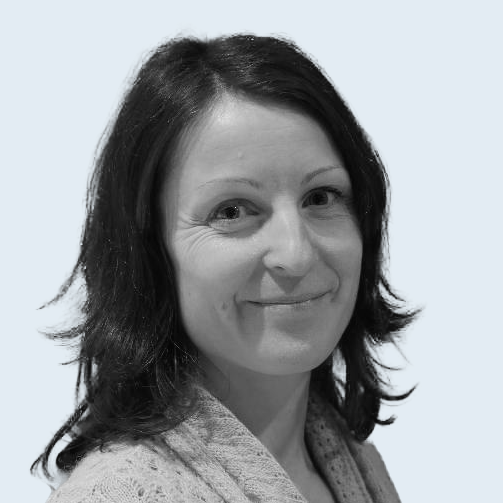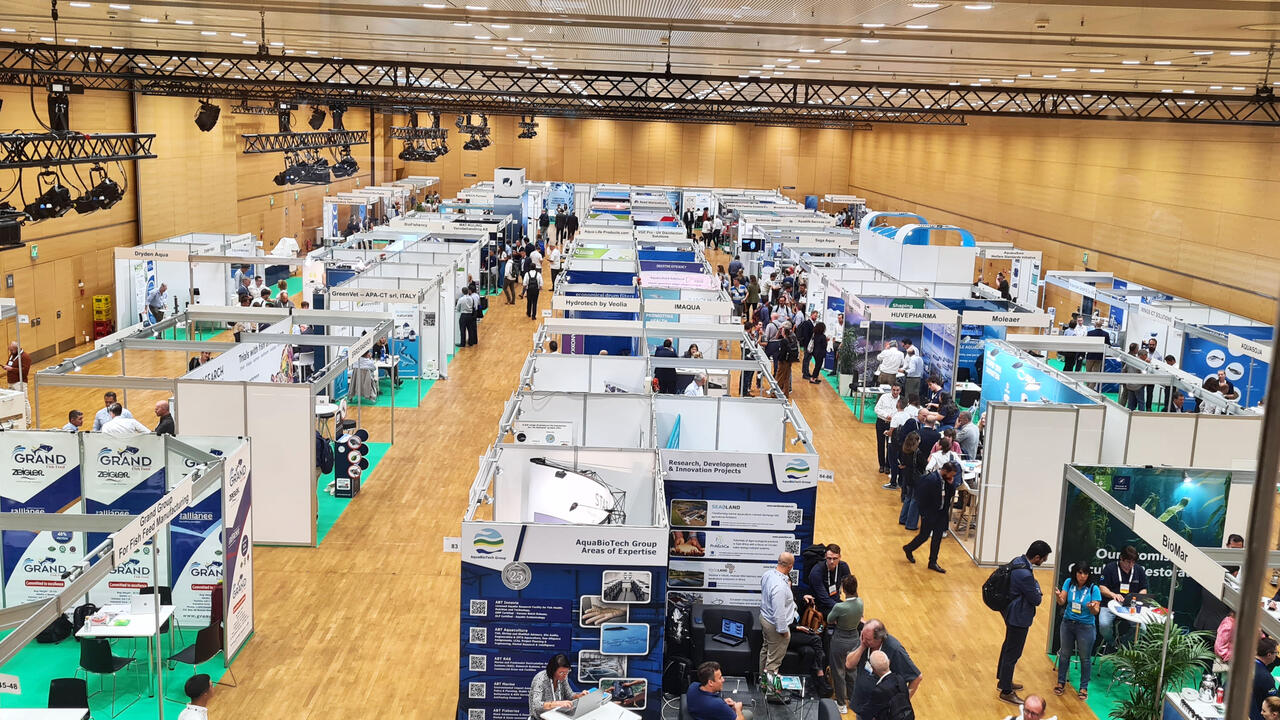
At the recent Aquaculture Europe (AE) conference in Vienna, we, Dr. Ingrid Henry and Dr. Sebastian M. Strauch from AKVA group, had the privilege of sharing groundbreaking discoveries. Our insights shed light on three pivotal aspects of aquaculture with the potential to revolutionize land-based aquaculture.
In his presentation, Dr. Strauch delved into the significance of enhancing protocols for biofilm maturation in nitrification biofilters within recirculating aquaculture systems (RAS). Our upgraded RAS experiments at AKVA group demonstrated that, by employing optimized protocols, complete nitrification could occur within a mere six weeks, even before introducing fish.
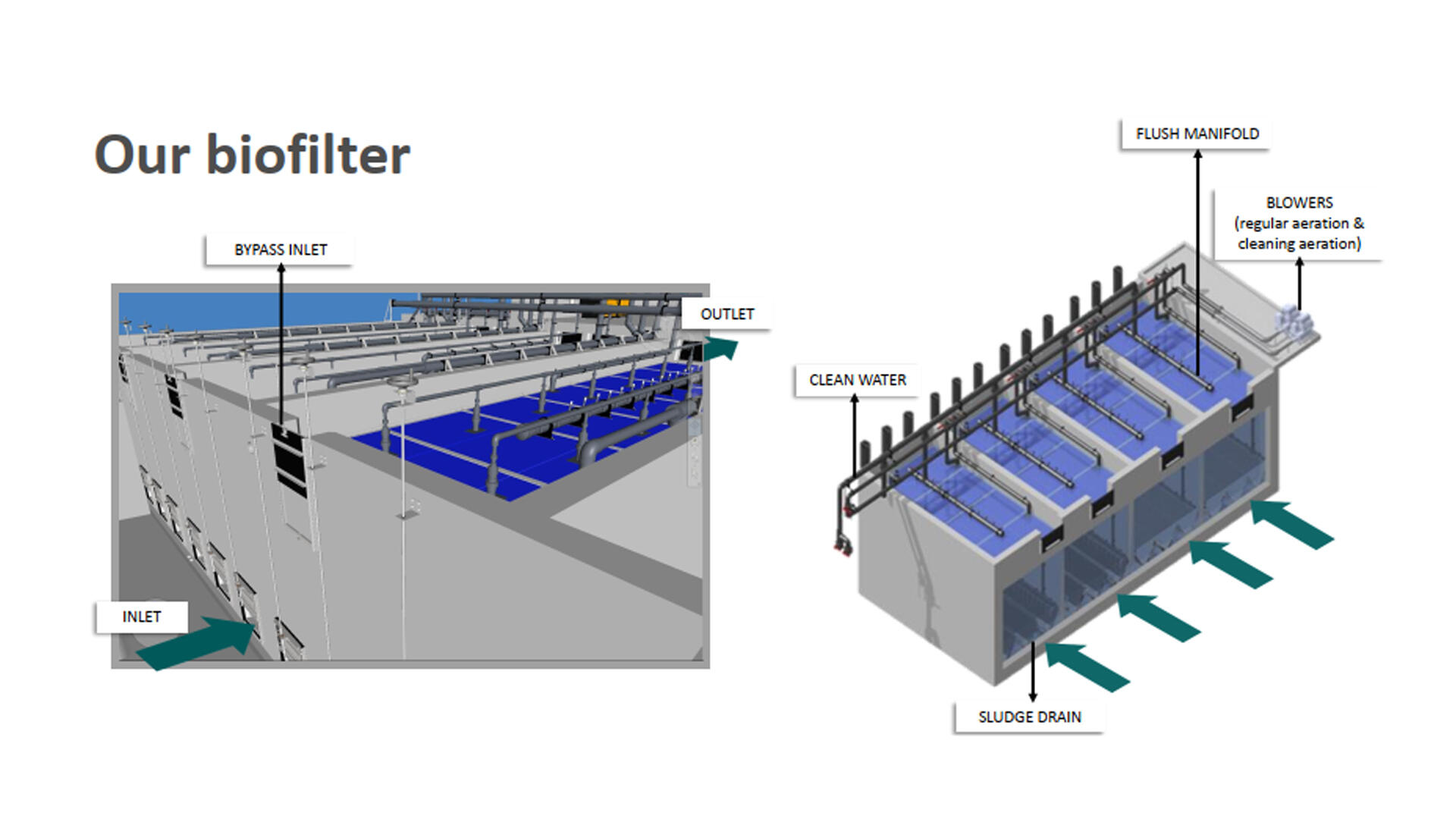
3-D illustration of AKVA group`s nitrification biofilters.
This development bears two significant advantages: it accelerates revenue generation in land-based aquaculture and guarantees an optimal environment for fish, supporting their well-being and growth. These findings offer invaluable guidance for streamlining maturation processes in RAS facilities.
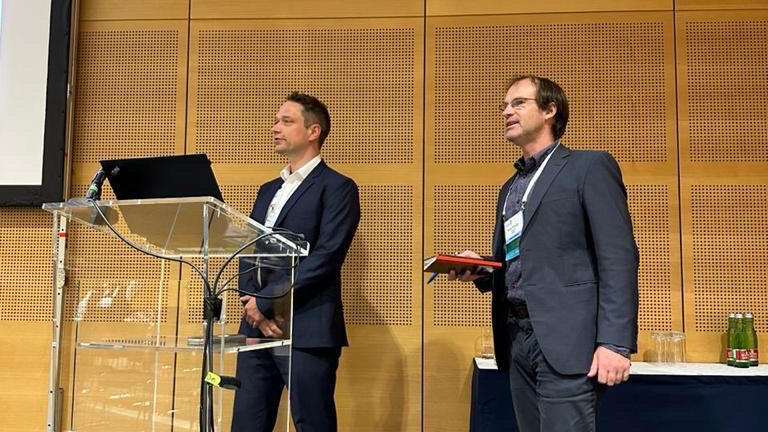
Dr. Sebastian M. Strauch in AKVA group & Session Chair, Dr. Kevin Torben Stiller in NOFIMA.
As Dr. Strauch put it, "The study aimed to reduce the time required for nitrification maturation to accelerate cash flow in land-based aquaculture operations."
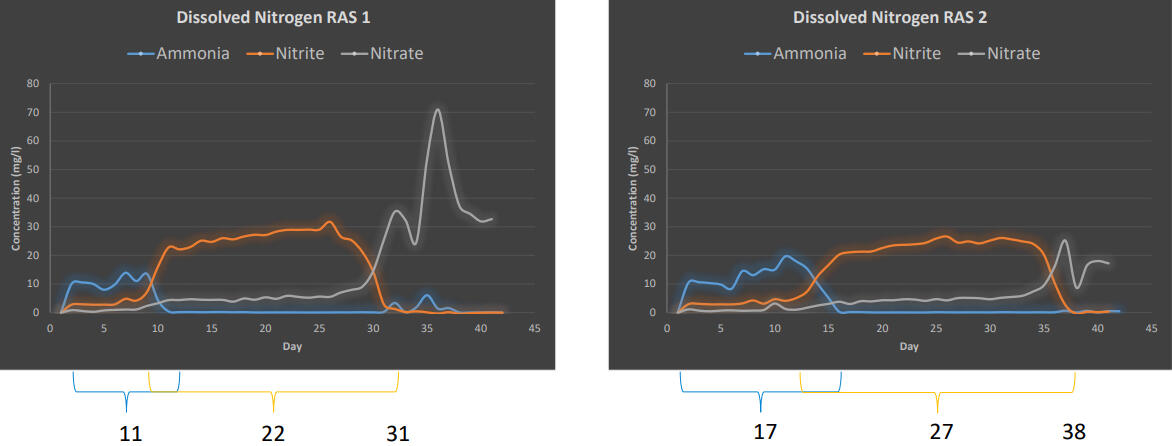
Concentrations of ammonia-, nitrite-, and nitrate-nitrogen in RAS 1 & 2 during the maturation period.
My presentation centered on the intricate world of particle dynamics in RAS. Titled "In-Situ Measurements of Particle Dynamics in a Recirculating Aquaculture Systems (RAS) Facility – A Case Study," the study explored the critical challenge of suspended solids in RAS – a challenge with significant implications for fish health and water quality. Our research delved into assessing particle size distribution, concentrations, and dynamics in a large-scale RAS facility using advanced measurement techniques.
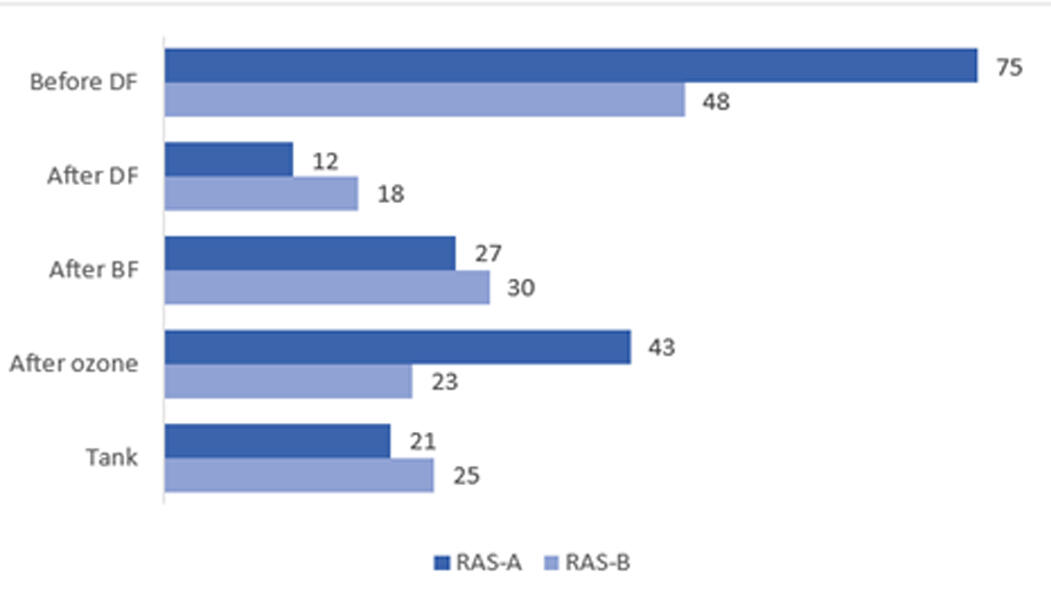
Particle concentrations (µL/L) across the different units of our RAS, measured in two systems.
The results unveiled key revelations, such as the presence of the largest particles before the drum filters and the lowest particle concentrations after the drum filters and in the fish tanks. Interestingly, particles in the fish tanks were primarily larger than 100µm in diameter. These findings provide essential insights for designing efficient water and solids treatment systems in RAS facilities and emphasize the necessity of site-specific particle dynamics analysis to optimize RAS designs. The findings provide crucial information for designing effective water and solids treatment systems in RAS facilities and highlight the need for site-specific particle dynamics analysis to optimize RAS designs.
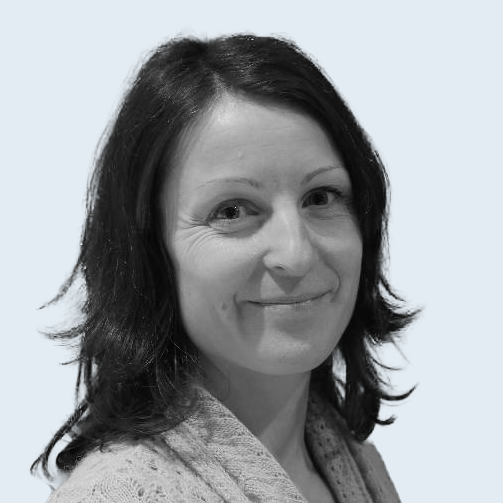
Dr. Ingrid Henry in AKVA group.
The conference also featured a workshop by Eurofish, hosted by the Hungarian University, exploring the profound influence of light on fish biology. We were joined by diverse participants from esteemed institutions such as the University of Copenhagen and the Tropical Marine Centre. During this workshop, Dr. Strauch presented a comprehensive review of scientific literature focusing on "IMPACT OF LIGHT ON ATLANTIC SALMON BIOLOGY." This research unveiled how light significantly shapes Atlantic salmon's crucial life stages, from smoltification to maturation, feed intake, and overall health. The study traced this light sensitivity back to the species' evolutionary history and discussed three sensory systems involved: the retina, pineal vesicle, and pigmented meninges.
A key discovery highlighted the importance of light quantity and spectrum, particularly green-blue light (~500 nm), due to its ability to penetrate water effectively and activate pineal sensitivity. Dr. Strauch's presentation not only enriches our understanding of fish biology but also suggests ways to optimize aquaculture conditions for the well-being and productivity of Atlantic salmon.
Our research findings offer practical solutions to expedite the maturation of nitrification biofilters, benefiting fish welfare and economic viability in land-based aquaculture. Simultaneously, our work addresses critical challenges in RAS facilities, contributing to improving systems and improving water quality and fish health.
These studies underscore AKVA group's unwavering commitment to advancing aquaculture practices and sustainability, ultimately benefiting the industry and contributing to responsible seafood production.
The Aquaculture Europe (AE) conference, organized by the European Aquaculture Society, provides a dynamic platform for both scientific and commercial interest groups. The conference features various thematic sessions, scientific presentations, and an exhibition area for commercial participants, with this year's focus on the theme "Balanced Diversity in Aquaculture Development."
If you have any questions and want to learn more. Feel free to contact:
Dr. Ingrid Henry
Biotechnology Specialist
R&D Land Based
Dr. Sebastian M. Strauch
Advisor RAS Production Biology
PAS/Fish Performance
